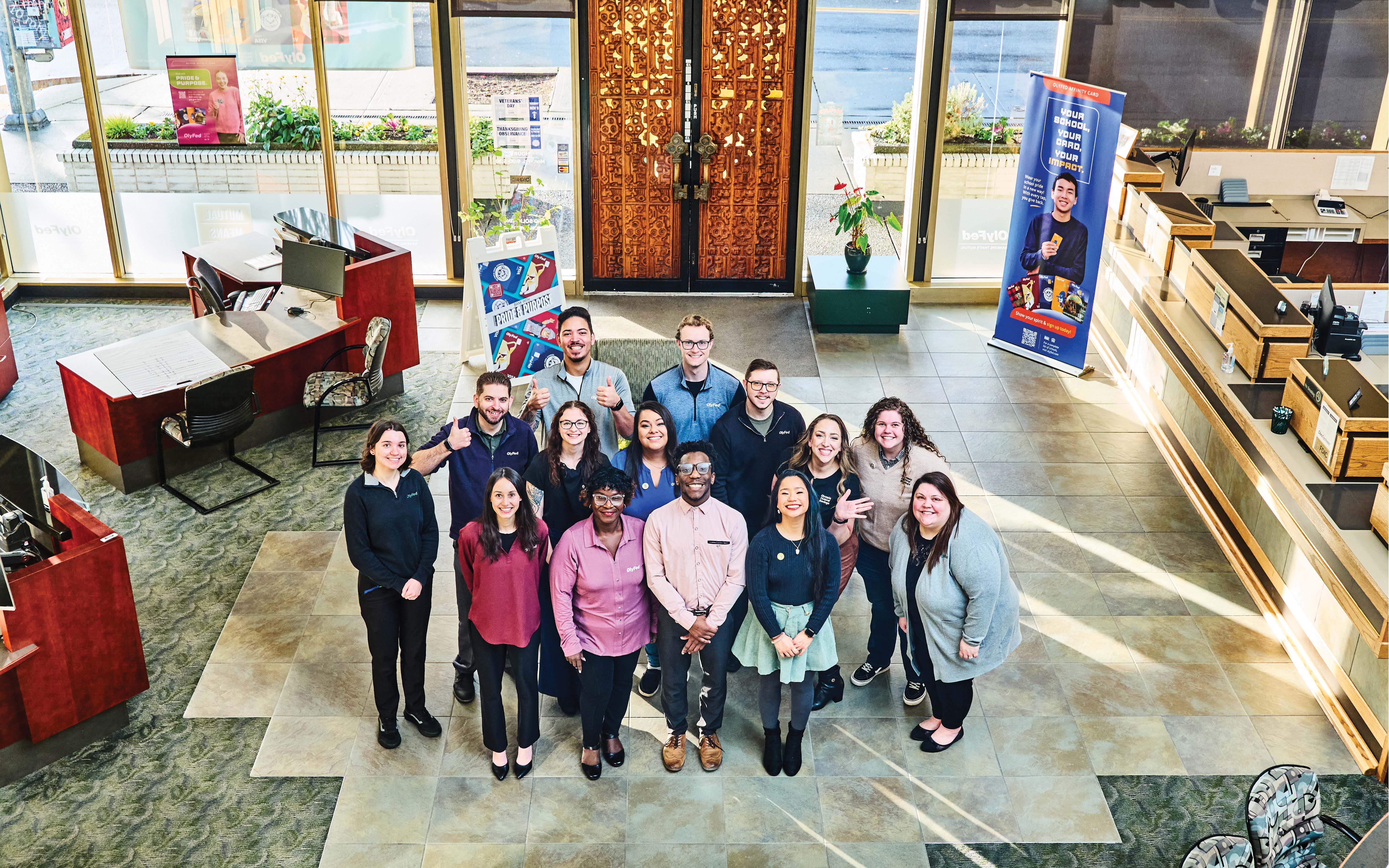How to build community in your teams and incorporate fun into the workday without breaking the budget or eating up valuable work time.
Lindsay LaNore: The Swift Swap
August 14, 2023 / By Lindsay E. LaNore
How to build community in your teams and incorporate fun into the workday without breaking the budget or eating up valuable work time.
Some of you have been asking how to build community in your teams and incorporate fun into the workday without breaking the budget or eating up valuable work time. Believe it or not, as little as 15 minutes every day can make a difference.
As we’ve discussed before, teambuilding exercises are an essential part of any leader’s toolbox. Our Community Banker University team recently tested an exercise called the Swift Swap as an opener for a daylong planning meeting. It only took up 10–15 minutes of our day but served as a great icebreaker and educational tool.
Here’s how it works:
Take a group, ideally 6–20 people.
Split your team into two groups and line them up facing each other.
Team A gets a quick observation period (30–45 seconds) to memorize as many things about the people in front of them as possible. Then they turn around.
Team B has two minutes to change as many things as possible about themselves—anything from rearranging the order of the lineup to swapping shoes with someone or changing a hairstyle.
Team A turns around and gets 5–6 minutes to identify what has changed.
Do it again, this time in reverse.
Have someone write down the observations so you can see which team logged the most.
This game allowed us to get out of our chairs, mingle with each other, be present, use our creativity and communication skills and laugh together. But beyond the smiles, we learned lessons that are useful to our roles.
Here’s what we noticed:
We learn by doing and practicing. Both teams got better at making changes or memorizing changes when they went second.
Everyone works toward goals differently. The two teams adopted a different memorization strategy. Team A each picked one person on the other team to observe, while Team B initiated more changes and incorporated more difficult swaps, thereby challenging Team A.
Nonverbal or quiet communication is an important skill to master. Whether you are the communicator or the observer, it can have a big impact on the results of a project or game.
Being quick on your feet to coordinate the team is critical to success. But so is adhering to the rules!
Creativity can help a project get across the finish line or uncover a new solution for the team. Changing the line order was easy to spot, but swapping a necklace was harder.
It may seem impossible to find time for something that isn’t on your to-do list but incorporating small activities like this into that list can be surprisingly effective. They pull you out of your daily routine, help work out team processes and teach some great lessons. Plus, they’re great for bonding. And that’s a pretty swift win!
Subscribe now
Sign up for the Independent Banker newsletter to receive twice-monthly emails about new issues and must-read content you might have missed.
Sponsored Content
Featured Webinars
Join ICBA Community
Interested in discussing this and other topics? Network with and learn from your peers with the app designed for community bankers.
Subscribe Today
Sign up for Independent Banker eNews to receive twice-monthly emails that alert you when a new issue drops and highlight must-read content you might have missed.
News Watch Today

Join the Conversation with ICBA Community
ICBA Community is an online platform led by community bankers to foster connections, collaborations, and discussions on industry news, best practices, and regulations, while promoting networking, mentorship, and member feedback to guide future initiatives.













